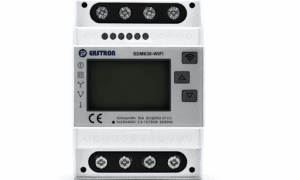Most gated communities today have already moved beyond registers and spreadsheets. The question isn’t whether to go digital; it’s which platform is built to handle how RWAs actually function.
For most committees, the choice usually comes down to Adda or Mygate. Both are widely used. Both offer a common set of tools: billing, complaints, communication, and bookings. But scratch beneath the surface, and they serve very different needs.
Adda focuses on estate manager features with lightweight resident-facing features.. Mygate is built more like infrastructure, a full-stack ERP designed for finance, facilities, vendors, staff, and audits. It is built to support not just one committee, but transitions across multiple committee cycles. The platform spans more than 250 interconnected features, making it less of a resident app and more of a full-fledged operating system for large societies.
This difference shows up in the way committees run on a daily basis. It defines what treasurers can automate, what facility managers can track, and what auditors can rely on without needing to hunt for paperwork.
Accounting is one of the clearest fault lines. Adda supports basic invoicing and collections. That may be workable for communities with few units that don’t require area-based charges, GST, TDS, advance payments, or complex reconciliation. In larger societies, the needs quickly outgrow these limitations. Mygate handles slab-wise billing, credit and debit notes, penalty automation, fiscal year locks, and ledger-level exports. It reduces manual work and eliminates inconsistency across treasurer terms. It also integrates with payment gateways, supports multi-bank operations, generates ageing reports, and allows filtering by unit, tower, or flat type with audit-ready accuracy. Mygate’s accounting module was built in consultation with RWA treasurers across cities and even supports advanced functions like income recognition, budget planning, and audit dashboards.
The helpdesk module works in a similarly structured way. Adda lets residents raise tickets and track status. But it misses deeper operational controls like SLA enforcement, escalation rules, and performance tracking. Mygate allows committees to assign SLA timelines, define resolution workflows, auto-escalate unresolved tickets, and collect OTP-verified closures via the Saarthi app. And yes, they’ve actually built a separate app just for the help staff(plumbers, electricians, etc.).It supports ticket categorisation, staff-level assignment, resident feedback scores, and trend dashboards. RWAs can review helpdesk performance in monthly meetings using real-time reports, not anecdotal complaints. Mygate also logs resolution evidence like images, offering a clear audit trail.
Staff and vendor oversight further reveals the contrast. Adda offers basic contact storage. Mygate allows structured shift scheduling, GPS-based patrol tracking, face-ID attendance, roster history, anomaly detection for missed shifts, and contract-level vendor scoring. You can track AMC expiry, issue fines for SLA breaches, measure vendor turnaround times, and assign services to different towers. The vendor management module even supports uploading of agreement copies, GST details, and service logs, helping RWAs create traceable vendor histories over time. For high-dependency vendors like STP maintenance or lift contractors, this level of traceability is often necessary.
Facility and amenities management is often reduced to bookings on most platforms. Adda handles time-slot booking. Mygate lets RWAs define caps per unit, create defaulter restrictions, add buffer times, configure refund policies, collect instant payments, and generate revenue reports. Usage heatmaps help identify overused or underutilised facilities. Admins can see who booked what, when, how often, and whether facilities are being monopolised by a few flats. Societies can even enable deposit-based bookings and automate refunds based on usage rules.
In reporting, Adda provides static downloadable summaries. Mygate offers interactive dashboards built from live system data. These include defaulter heatmaps, facility revenue charts, helpdesk SLA compliance, vendor scorecards, payment recovery metrics, and more. Committees can automate report schedules, send them directly to auditors, or export them as board-ready visuals for AGMs. The system’s design ensures reporting is not an extra task, but an automatic outcome of day-to-day use.
Unlike Adda, Mygate is designed to handle committee transitions seamlessly, without being dependent on a single admin. There is multi-role access control, audit logs of every admin action, fiscal locks post-audit, and custom access for managing agents, auditors, and staff. Roles can be restricted to individual modules. Password changes, approvals, document access, and deletions are all tracked. This reduces dependency on any one individual and makes handovers smoother. Mygate also maintains a record of policy changes, account locks, billing cycles, and approval flows.
Implementation and onboarding support are not identical either. Adda provides self-serve tools. Mygate assigns an on-ground deployment team for each society in major cities. They handle data migration, rule configuration, resident onboarding, vendor entry, and guard training. These teams don’t just implement features; they help committees design workflows, set up initial reporting structures, and ensure long-term usage. Regular refresher trainings, new committee orientation sessions, and account health reviews are part of the ongoing support framework. Societies also get access to a dedicated success manager.
Communication in Mygate is designed as a governance tool. It allows tower-wise, resident-type filters, auto-translation of notices, read-status tracking, reminder notifications for unread messages, and built-in polls. Committees can also control who replies to messages, reducing irrelevant chatter. While Adda sends general messages, Mygate helps RWAs control narrative, ensure reach, and track whether residents are actually receiving important updates. Mygate also supports audit logging of all sent notices and system-triggered reminders for follow-ups.
Data security and access controls matter deeply when a system is handling society dues and legal documents.
In May this year, Adda suffered a massive data breach. Information of over 1.8 million users was leaked, including names, phone numbers, email IDs, residential addresses, and internal notes. The leaked database was later found on a public hacker forum, confirmed by security researchers. For RWAs, this is not just a technical issue. It creates real-world risks like phishing attempts, identity theft, impersonation, and financial fraud.
What raised further concern was how the incident was handled. Many impacted communities were not directly informed. There was no immediate public disclosure. For RWAs trusting a platform to store sensitive data, that silence is worrying.
Mygate takes a far more structured approach to data protection. All data is encrypted in storage and during transfer. Every admin action is logged. The system is built on GDPR-compliant principles and has automated backup policies in place. Changes to financial records are tracked. Documents are version-controlled. Admins can see exactly who accessed what and when. Mygate also offers two-factor authentication and single sign-on support for added protection.
These aren’t backend details for the IT team. In audits or disputes, they often become the only way to establish accountability.
So what does this all add up to?
Adda is a reasonable tool for small, low-complexity societies with fewer moving parts. It does basic digitisation well.
For large-format RWAs, with vendor teams, audits, fiscal complexity, and staff dependencies, the reality is different. Mygate’s platform is built for that scale. With 250+ features, 25,000 communities onboarded, and 90 percent penetration across India’s major metros, it has become the de facto operating system for serious RWA governance.
Choosing between the two is less about features and more about operational clarity. Mygate is designed for layered control, for data-backed audits, for recurring committee transitions, and for scaling complexity over time. It takes the unglamorous, backend-heavy parts of committee work and makes them quietly functional.
When committee members change, vendor expectations grow, audit standards increase, and resident demands get louder, a platform that can quietly hold it all together makes all the difference.
And that’s what RWAs need to choose for.



































